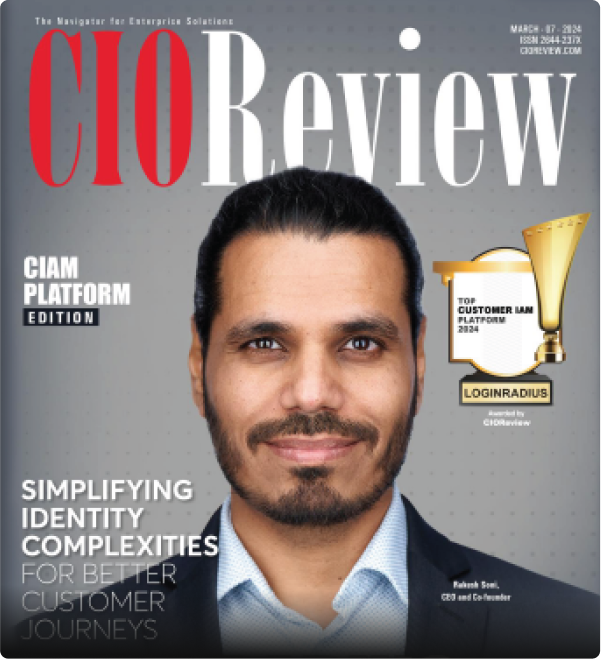The Digitization of Agile Marketing Principles - How Has It Changed Over the Years
Agile Marketing is an alternative form of marketing that involves the use of tangible data and analytics to find opportunities for an increase in revenue or a search for solutions in real-time. The characteristic feature of this kind of marketing is that a team of developers and marketing personnel will focus on high-value projects.


Learn How to Master Digital Trust

The State of Consumer Digital ID 2024

Top CIAM Platform 2024
It is a common fact that the development and marketing process goes hand in hand. An enterprise will create or develop a product with a set of beneficial features.
Marketing involves showcasing these properties. Previously, development and marketing strategies were restricted by the lack of technology. However, this has changed now, with 78% of consumers conducting product research online.
This drastic change has led to a change in the way developers approach ideas, also known as the birth of Agile Digital Marketing.
Agile Marketing: Definition and Working Process
Image: Graphical Representation of Agile Marketing Process
To understand what Agile digital marketing involves, you must first understand Agile Marketing. Agile Marketing is an alternative form of marketing that involves the use of tangible data and analytics to find opportunities for an increase in revenue or a search for solutions in real-time.
The characteristic feature of this kind of marketing is that a team of developers and marketing personnel will focus on high-value projects. This kind of marketing is extremely flexible and does not rely on a single or few techniques.
In essence, an ideal Agile Marketing Process will involve the following aspects:
-
Collaboration between team members and public
-
Adapting to changes in the industry
-
Testing and data-based techniques
-
Niche experiments
-
Catering to individual wants instead of a demographic
In essence, Agile Marketing plays off of Agile Development Team methodologies to manage the products that cater to a fluctuating industry.
Learn more about the fundamentals of Agile Development.
Connection Between Agile Marketing and Inbound Marketing
CEO of Allposit, Mike Lieberman, says that Agile marketing has to be implemented to inbound marketing or else you will not receive any significant results from their campaigns.
Inbound Marketing involves the use of valuable content or personal experiences of a consumer to attract them to a certain product.
For example, a blog post talking about a certain product and its connection to the writer's personal experience is more relatable to an individual.
Reasons why inbound marketing requires agile can be summarised in the following points:
-
Traditional marketing cannot adapt to changes in society, be it cultural or financial. Therefore, the campaign will not be effective.
-
Agile inbound marketing can bring in quick results that become evident in less than a year.
-
Agile marketing encourages developing products that are based on data and tests instead of your opinion.
-
Prevents the creation of silos and would, therefore, increase collaboration between team members.
What Agile Digital Marketing Entails
When it comes to implementing agile digital marketing, the best part is that any business, both large or small, can do so. Follow the steps below:
1. Listening to the audience
You have to be on the constant lookout for certain cultural changes in the public like sports or other events like Oreo did. You can be connected to an audience to find these opportunities with the help of social media and platforms like Warble and Google Adwords.
2. Responding quickly
Once the keywords and trending hashtags have been obtained, the campaign must include these aspects to better relate to the audience.
3. Creation of a suitable agile marketing methodology
Finally, once the iterations or alterations are carried out, you have to create a strategic methodology that will increase the effectiveness of the campaign. For example, the 70:20:10 methodology. As per this, the campaign will be divided into particular sections. That is,
-
70% of the campaign should include normal digital marketing.
-
20% is a mixture of traditional and agile digital marketing.
-
10% is complete agile marketing, where all the aspects of the marketing will follow the above steps.
Some Examples of Agile Advertising
To determine the process of agile marketing management and the above aspect, you can turn your attention to the marketing campaign put forward by the tech giant, Dell, and Mozilla.
Dell: Simplifying Campaigns With Agile Marketing
Dell possesses a couple of hundred employees under the Dell Software Marketing Department. This department's primary aim is to promote the recent products developed on a global scale.
Being a software/technology company, the team uses a range of online marketing concepts like SEO, Lead Generation, Channel marketing, and more.
In a sense, the marketing department was running several different campaigns simultaneously, putting a damper on the effectiveness.
To sort out this confusion, the company turned to Agile Marketing. Dell created a platform that would ensure that team members could communicate with each other.
This shift provided an evident benefit as the marketing is now spread across the world, operating in month-long sprints.
Therefore, the department could become more diverse and be better "listeners" to consumers from all over the world in 7 months.
Mozilla: Finding Direction Through Agile Marketing Management
Mozilla was also plagued by thousands of consumer interactions, all asking for something different. This greatly affected their marketing campaign.
The marketing director then decided to introduce the principles of Agile in the form of "Meta Principles" to increase the frequency and quality of communication within the marketing department.
Firefox used traditional marketing methods and displayed its newest products in two separate launches. This was highly inefficient and energy-consuming.
The department was then divided into small teams with as many generalists as possible. Although it took some time to pick up, this method dramatically increased the conversion rate.
Wrapping Up
Incorporating agile into digital marketing can be extremely beneficial to an online campaign. An enterprise can tackle several campaigns at once on different platforms. Thus, they are capable of relating to a large audience on a global scale.

